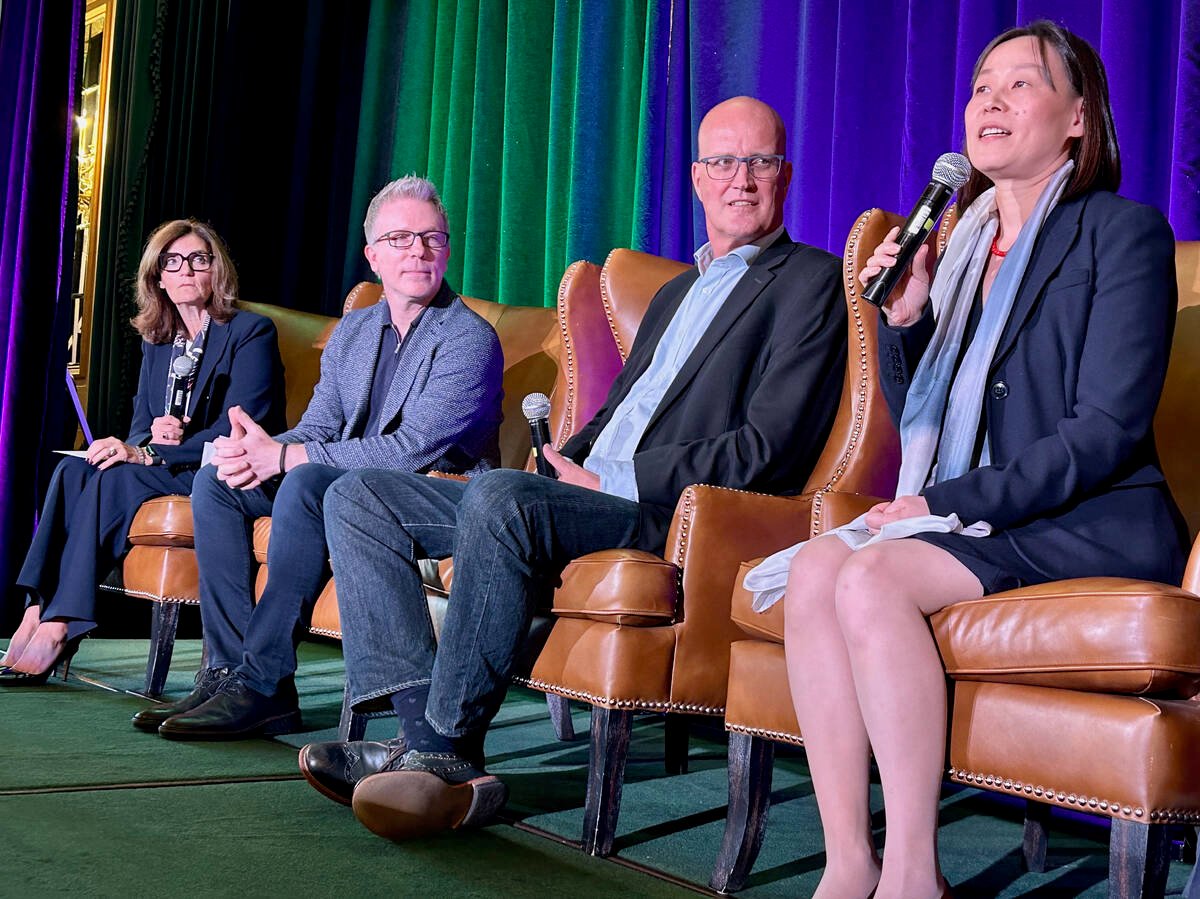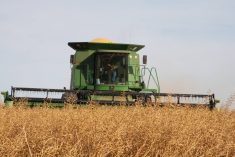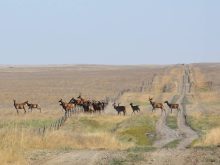By the time they tired of this new obsession, the brothers knew everything there was to know about the big city of Chicago
During winter evenings in January of 1976, a new world revealed itself to four Manitoba farm brothers.
After we heard the radio waves from faraway, we began to experience the bigger world out there — Chicago.
My older brother David had become fascinated with radio and the news it could bring to us. We were no longer happy with Brandon’s CKX with its livestock reports and Wheat Kings’ scores.
Brandon was about 60 kilometres due south. We had heard of cities we could hardly imagine, let alone place on a map: Minneapolis-St. Paul (the Twin Cities – who knew cities could be twins?), Denver, St. Louis and Chicago.
Read Also

New program aims to support plant-based exports to Asia
Understanding the preferences of consumers in Taiwan and how they differ from Indonesia or Malaysia isn’t easy for a small company in Saskatchewan.
David had an old radio, but he magnified its reach by rigging a wire antenna in the two-storey farmhouse attic. Plus, those cold clear winter nights with little electronic interference were perfect for extending the radio’s pull of electronic waves from far afield.
We even heard the wild theory that these radio transmission waves could bounce off the atmosphere and return to earth, further lengthening their reach. Unbelievable. We were connected to our vast neighbour to the south — the United States.
So after the evening chores and homework were finished (OK, not always the homework), we’d gather around the radio. David would begin turning the dials. Bizarre sounds emanated from the bread loaf-sized box.
Welding noises, my youngest brother, Ron, would term them later.
We wouldn’t know the station until news time when the announcer would broadcast the call letters and the city, as in: KSTP, St. Paul (Minnesota); KOA, Denver; or KMOX, St. Louis. For some reason, WMAQ, Chicago, resonated with us. Maybe because it was relatively close, but still 1,600 km away. We were enthralled with Chicago. Its Sears Tower, now the Willis Tower, was the tallest building in the world.
It was the home of hockey’s Blackhawks, younger brother Tim added.
We heard great new things and words. Even late at night, they had traffic reports. The Dan Ryan Expressway was always busy — all 14 lanes. Crazy. The Kennedy and Eisenhower Expressways were similarly crowded. The Tri-State Tollway (what is that?) along the western suburbs usually moved freely.
Basswood, our hamlet of 90, had congestion when a tractor pulling a hayrack passed through. I do recall a car’s horn honk once.
And weather reports were so important for Chicagoans’ morning commute (another strange word). The Illinois city on the western shore of Lake Michigan always had sleet in winter, that strange mixture of blowing snow and freezing rain. Sleet meant trouble. Stay tuned. The traffic accident reports would soon follow.
Mom assessed our winter weather by looking at the outside thermometer and checking the sky’s colours and clouds.
We began to learn the announcers’ names and specialties.
Then David added a twist. He had somehow obtained the WMAQ radio address and wrote them a letter. Two weeks later, a thin wide envelope arrived at our humble post office in the Basswood hardware store. Inside were half a dozen black and white photos of their main on-air personalities.
We were thrilled — and soon in love. Disc jockey (huh?) Ellie Dylan, a young lady with a silky voice, had just come on-board with WMAQ. She had the 7 p.m. to midnight stint. We stared at her 5 by 7-inch glossy photo as she called out names like Kenny Rogers and Dolly Parton.
I found out Miss Ellie Dylan was actually Elinor Angel Helman, who was born in Chattanooga, Tennessee. She had a new name for radio. What’s that about? I didn’t know you could just change your name on a whim.
WMAQ blasted out into 38 states and four Canadian provinces. In the slang of the day, it was a superstation, one of about 12 in the U.S. It was formally a Class A clear channel station sucking up 50,000 watts of power. Whole towns in Illinois likely had their lights flicker when WMAQ powered up.
WMAQ marketers promoted the station. If you answered the phone with “WMAQ is gonna make me rich!” and if it was the radio station calling, they said they’d hand you $10,000 cash. Wow! Never did they say their contest was closed to Canadian farm boys. We never worked up the nerve to answer our family phone that way. However, it was OK to dream about it.
By summer, we brothers were the Chicago experts of Basswood. We knew the freeway names. I looked in an encyclopaedia and discovered the city name meant “wild onions,” which had been found there by the natives. We learned of the adjacent states: Indiana, Iowa, and Wisconsin. We heard of the airports: O’Hare, Midway and Meigs Field. Did “O’Hare” have anything to do with rabbits? I’ll assume we quarrelled over that.
Our debates didn’t matter. We were four boys hearing about a faraway place. And it was a world so big, we could barely imagine it. At 7.2 million people, Chicago and its suburbs (called “Chicagoland”), held more people than Canada’s four western provinces combined. Brandon, at 32,000 citizens, was our big city. There was a great wide world out there. David’s radio presented it.
In September, we were all a grade older at school, and we had more homework. Ellie had lost her allure, it seemed. Perhaps, the 25-year old had a boyfriend, we guessed.
The next June, David graduated from Grade 12 and moved to Alberta. We three still listened to WMAQ, but our cabal of Basswood Brothers had diminished. We didn’t care so much what Chicago Mayor Michael Bilandic did anymore.
However, like a Chicago freeway, life has its twists and turns, and some of them at high speed.
In March 1978 and in Grade 12, a friend and I drove through Chicago and into northwestern Indiana. We checked out a university at Valparaiso. The expressways were familiar in name only. We had no sleet, but it did rain. And about every 15 km, the tollway signs demanded 30 cents.
I fidgeted and found WMAQ, 670 AM on the radio dial. I already knew that Ms. Dylan had departed for New York radio. One story said she followed a boyfriend. In her three years in Chicago, she had helped deliver WMAQ from 17th to first in the ratings.
Chicago was huge. We could see its glow in the sky from the Wisconsin border. Soon we spotted a pierce of light into the sky — the blackish and blocky Sears Tower. It took us two more hours to circumvent the metropolis on the western edge and escape into Indiana.
Yet the city felt vaguely familiar and strangely home. It was like I had somehow experienced it earlier and in my younger days.

















